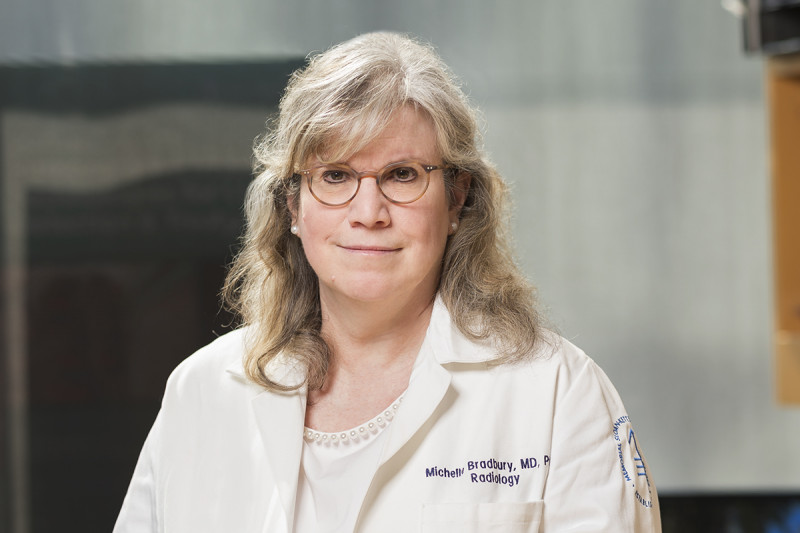
A month after a journalism investigation that led to resignations and turmoil at Memorial Sloan Kettering Cancer Center in New York, researchers including a Sloan Kettering scientist have quietly corrected at least two papers to add disclosures of financial conflicts of interest.
The two corrections, in Chemistry of Materials, are dated October 8, 2018 and read:
We would like to correct the Conflict of Interest statement, which was “The authors declare no competing financial interest”, to “One or more US or international patent applications submitted by the authors relate to the radiolabeling, surface chemistry, characterization, and biomedical applications of the products. MSK, Cornell, and two investigators involved in this study have a financial interest in Elucida Oncology, Inc.”
The papers focus on the potential use of nanoparticles in targeted cancer treatment, which is also the focus of Elucida,
a biotechnology company focused on clinical research, development and subsequent commercialization of life-changing products…
The corrections appeared exactly a month after the New York Times and ProPublica reported that Sloan Kettering’s chief medical officer, Jose Baselga, had “failed to disclose millions of dollars in payments from drug and health care companies in recent years, omitting his financial ties from dozens of research articles in prestigious publications like The New England Journal of Medicine and the Lancet.” Baselga resigned shortly thereafter, and senior executives told staff that they needed “to do a better job” disclosing such conflicts of interest.
The American Chemical Society, which publishes Chemistry of Materials, tells Retraction Watch that the authors of the paper — who included Sloan Kettering’s Michelle Bradbury, along with researchers from Cornell University in Ithaca — requested the corrections after the Times-ProPublica investigation was published. However, Susan R. Morrissey, Ph.D., Director of External Affairs & Communications at the American Chemical Society, said that
The editorial staff was not aware of the NYT story prior to the decision to add the correction.
Bradbury, who is co-corresponding author of the papers along with Cornell’s Ulrich Wiesner, is on Elucida Oncology’s scientific advisory board, as is Wiesner. She did not respond to a request for comment about whether the story prompted the corrections.
Like Retraction Watch? You can make a tax-deductible contribution to support our growth, follow us on Twitter, like us on Facebook, add us to your RSS reader, sign up for an email every time there’s a new post (look for the “follow” button at the lower right part of your screen), or subscribe to our daily digest. If you find a retraction that’s not in our database, you can let us know here. For comments or feedback, email us at [email protected].
“Need ‘to do a better job’” of disclosing financial interests? Authors know if they stand to make money from their research efforts, and either a true disclosure is made, or it isn’t. And why should a journal just let this information be added after the paper has been submitted, reviewed, revised, published, cited, etc? Keeping relevant financial interests hidden is a violation of integrity in research, no less than cherry-picking data. Authors who do this should have their papers retracted.
“Authors who do this should have their papers retracted”
That would leave many a paper retracted.
But I agree.
We have to remember many journal editors are often collaborators past and present. Often even friends.
That’s true.
If journals really wanted to make disclosure an essential element of research integrity, they could simply state that failure to disclose COI at submission would be automatic grounds for retraction of a publication. An author who wants to claim they are so unworldly-wise that they don’t know if they are conflicted can get the advise of in-house counsel when filling out the submission form. Judging by the precisely vague language in these 2 corrections, there were lawyers around.
What about their paper in STM?
2014: http://stm.sciencemag.org/content/6/260/260ra149
2014: Elucida founded: https://www.bloomberg.com/research/stocks/private/snapshot.asp?privcapId=535068157
By the way – by just disclosing one cannot remove the actual conflict of interest. These papers should be retracted either by the journal or by the author if they have common sense!
All academic researchers are motivated to obtain positive results that yield papers, grants, pay raises, tenure. That’s a kind of conflict of interest that’s implicitly accepted but the motivation behind most misconduct. Just look at all the retractions on the leaderboard that have nothing to do with what is supposed to be disclosed as financial COI. Funding from commercial entities is looked on by many as essentially corrupting but whether it is or not depends on the researcher. If a researcher chooses to hide their financial arrangements with a company, it is, no matter how they rationalize that decision. If they are up front and transparent about their dealmaking, I’m okay with it.
Bradbury is a faculty member in the department of radiology at Sloan Kettering. What is happening in this department? Hricak – the chairman – is well known to the audience of retraction watch. See links:
http://retractionwatch.com/2018/04/06/highly-cited-paper-by-dept-chair-at-sloan-kettering-is-corrected-three-times/
http://retractionwatch.com/2015/05/07/cancer-imaging-review-pulled-for-similar-text-and-illustrations/
http://retractionwatch.com/2016/05/10/non-retraction-notice-editors-explain-why-two-similar-papers-arent-redundant/
Pretty obvious what has been happening with Hricak, Bradbury, and a few others at Sloan Kettering! The question is what will happen!? We wonder how they will clean their reputation. Would not surprise me if they loose their NHI support. Do not forget these investigators are supported with huge amounts from our tax dollars!
Research should be free of commercial bias. Why is it difficult to follow this simple principle? At least just follow the journal guidelines on COI To avoid trouble.
If a highly educated researcher “forgets” to fill a simple COI form during manuscript submission, how can we trust in them that they did not “forget” some important data to show in their paper?